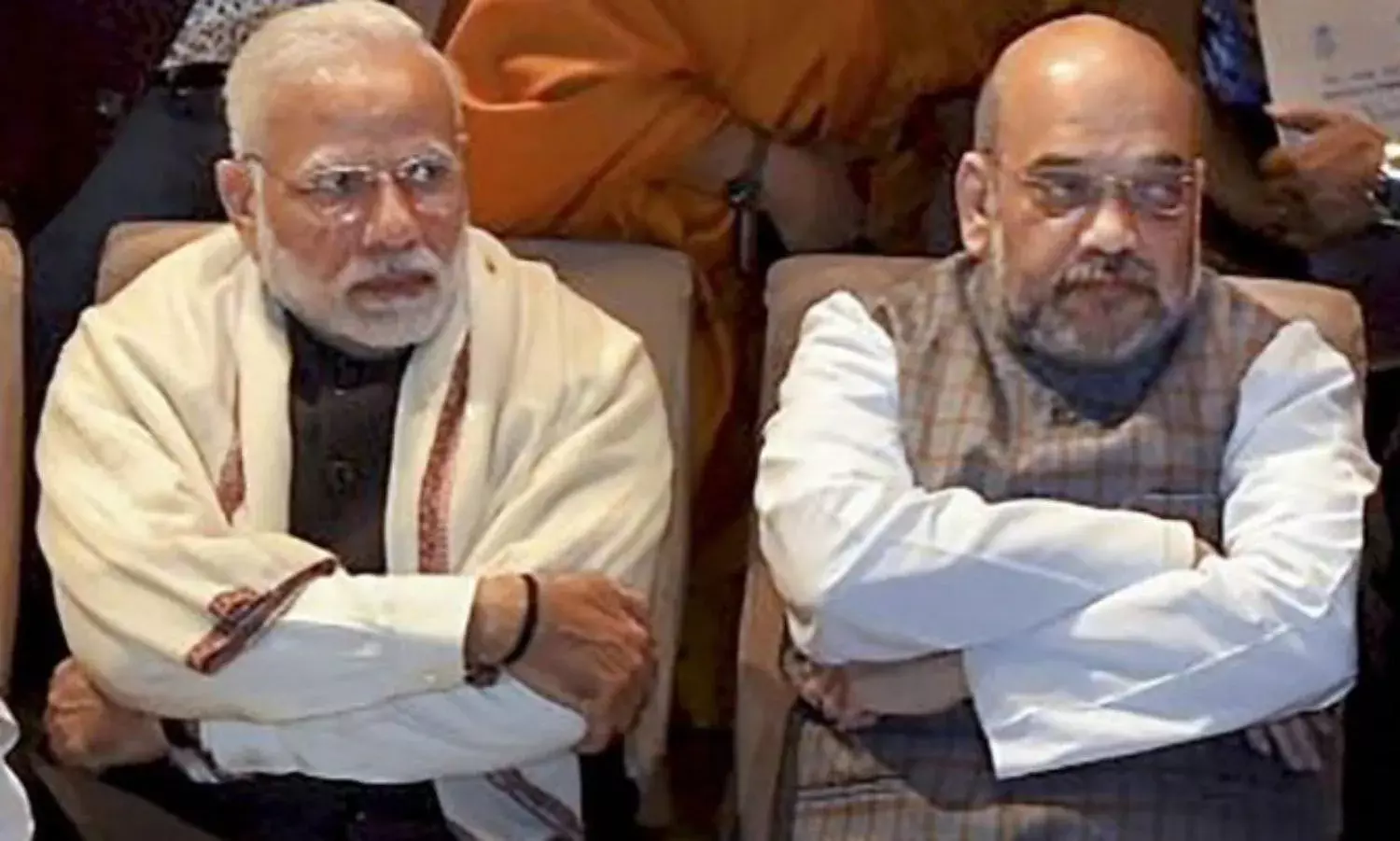Why The BJP’s Recent Moves May Not Work
Even so this is no time for the opposition to be sanguine.

NEW DELHI: The ruling Bharatiya Janata Party (BJP) has not exactly enjoyed the best election season build-up.
Allies are either flexing muscle or switching camps. Strong opposition alliances are taking shape in several key states. The noise on economic mismanagement, farm sector distress, institutional overreach, and the Rafale deal refuses to abate.
Arch rival Congress, after maneuvering itself into power in Karnataka, recently bested it in assembly elections to three crucial Hindi belt states. And the prospect of a non-BJP government, or at least a government not led by Narendra Modi, no longer sounds remote.
In this sobering backdrop, it is unsurprising that BJP sympathizers are clutching at two recent in-parliament developments - a Constitutional Amendment providing ten per cent reservations in jobs and education for economically weaker sections (EWS) from the general category and the passage of a Citizenship Amendment Bill in the lower house to provide easier Indian citizenship to non-Muslim refugees from neighboring countries – to shore up their spirits.
The underlying political calculus for these is clear. The Constitutional Amendment is aimed at wooing the party’s fraying support among the upper castes, while the Citizenship Amendment Bill privileges mainly Hindu refugees in citizenship matters and seeks to convey the government’s commitment to countering the ‘overgrown’ Muslim presence in states along the eastern borders.
A third decision has led to relaxations in the GST regime for small businesses and with a cabinet minister speaking of more sixes coming up in the slog overs, one expects a series of people-friendly measures being rolled out in the coming weeks. It is, at one level, par for the course in an election year. Whether these will yield the BJP the expected political dividend however remains uncertain.
For one, the electorate is wise enough to spot a genuine policy stance from an election-time ploy. Modi himself seems aware of this and hence his statement about the frequency of Indian elections making it tough to make any decision without it being linked to elections. In tying this statement with his oft-repeated call for ‘one nation, one poll’, Modi gamely tries to make a virtue out of a necessity, but it is difficult to shake off the feeling that his government’s recent hustle owes much to reports of growing discontent among the BJP’s hitherto most loyal voters, the upper castes and the trading class.
The perception that the government’s latest moves are with an eye on the general election also gains credence because the projected benefits of the measures being announced are not going to be seen any time soon. There are many hoops to jump through before EWS reservations and easier citizenship becomes a reality and, given the government’s unedifying record when it comes to delivering on its usually tall promises, the opposition’s jumla tag does not appear off the mark.
Even if voters were to grant the government the benefit of doubt when it comes to timing, there is still the question of who exactly will be won over by the above gestures.
With the Citizenship Amendment Bill, the BJP may achieve some traction in parts of West Bengal but risks alienating its own allies and a sizeable section of opinion in the North-east. The BJP’s trade-off - between the North-east where it is on a surer footing and West Bengal where its influence remains disproportionately lower than its noise - raises question marks on the incremental gains that could accrue to it.
Meanwhile, the GST relief may not be enough to undo the post-demonetization damage. Also, claiming sole credit for such relief is going to be tough for the BJP with GST-related changes being driven by the GST Council. More importantly, the Congress with its sustained and trenchant criticism of the poorly implemented GST regime can claim to be vindicated with each tinkering in it. Similarly, the opposition, especially the Congress, is in a position to gather mileage from any farm sector relief package the government decides to unveil.
Between the paucity of jobs created, the eligibility criteria for EWS reservation, and doubts, legitimate or otherwise, on whether the Constitutional Amendment passed by parliament is the final word on the subject, it is easy to see why the general category population has not been rapturous about it. Worse for the BJP, it has stoked long-held suspicions about a backdoor end to reservations among the reserved categories. Again, Modi himself has been alive to the potential suspicions that could arise but in going ahead nevertheless has trusted his party’s communication machinery to assuage them. Whether this will work remains doubtful given the anti-dalit image the BJP has come to acquire on ground.
At a larger level, the moves so far are designed to arrest the disaffection brewing among the BJP’s core voters. The party then is in a scramble for salvaging its core vote, a comedown from a time not long ago when it was talking of expanding its footprint and a testimony of how roundly it has disappointed the electorate.
That said, this is no time for the opposition to be sanguine. The recent aggression in interrogating the government needs to be sustained and the substance, timing, and import of future announcements must be pre-empted. It is rather belatedly and with considerable effort that the opposition has wrested the narrative-setting role. Conceding it at a crunch time would be a pity.



